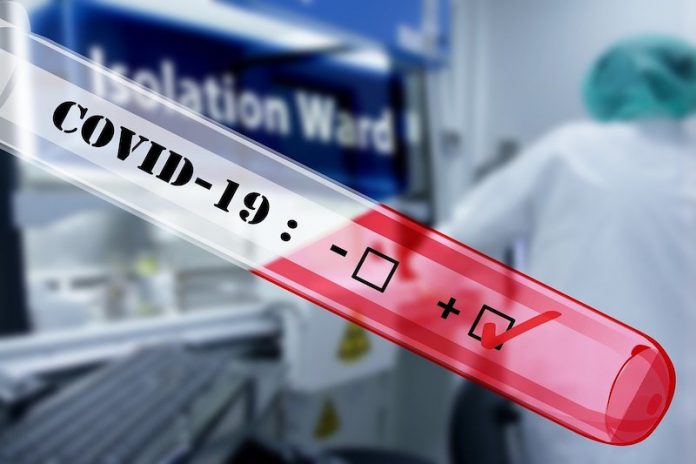
In a new study, researchers have developed a rapid, one-step diagnostic test that detects SARS-CoV-2, the virus that causes COVID-19, in samples of saliva.
The test has a single tube that contains all of the materials needed to get reliable results in about 30 minutes.
The research was conducted by a team at the Columbia University Fertility Center
Unlike commercially available tests, the new saliva test does not require expensive instruments or proprietary components.
The test was adapted from technology currently used by Columbia fertility experts to look for genetic abnormalities in embryos prior to implantation.
Current polymerase chain reaction (PCR) diagnostic tests for COVID-19 must be shipped to a reference laboratory unless the facility collecting the samples has purchased costly and proprietary machinery and cartridges to extract the SARS-CoV2 virus’s RNA from the fluid in which the sample — either a nasopharyngeal swab or saliva — is placed.
With the new test, saliva is collected in a cup and then placed into a tube containing enzymes and reagents that detect the virus’s RNA.
The tube is then placed into a water bath or heat block to keep the sample warm throughout the reaction.
Within 30 minutes, the fluid in the tube turns yellow if the virus’s RNA is present and red if the virus isn’t present.
The new test is based on the researchers’ LAMP test that detects the SARS-CoV-2 virus in nasal swabs.
Similar to the saliva test, the nasal swab test detects the virus’s RNA directly from the transport media (the fluid in which the swab is placed before processing) in one step and does not require expensive instruments or proprietary components.
The team tested the LAMP saliva assay in 60 samples, including 30 samples with virus and 30 without, and in samples from 18 patients whose saliva was also tested using RNA extraction and RT-PCR.
They showed that the new test correctly identified all of the negative samples that also tested negative with the Roche 6800 PCR system, resulting in 100% specificity.
The test also correctly identified 29 out of 30 positive samples, resulting in overall sensitivity (a measure of a test’s ability to capture positive results) of 97% with no cross-reactivity with 19 other viruses and bacteria known to cause respiratory illness — including other coronaviruses.
The new test can detect as few as 1 or 2 copies of the virus in a microliter of saliva. Using traditional LAMP assays, even hundreds of copies of the virus wouldn’t be detected.
The team says this technology was initially developed to make a real difference to the fertility clinic patients, who need rapid, reliable test results to determine the next steps in their fertility treatment.
They then realized that the same technology that they use to help create lives could be repurposed to help save lives during the COVID-19 pandemic.
The test serves a critical need for more widespread testing to help them safely reopen economies closed by the pandemic and prevent future outbreaks.
One author of the study is Zev Williams, MD, the Wendy D. Havens Associate Professor of Women’s Health and chief of the division of reproductive endocrinology.
The study is published in MedRxiv.
Copyright © 2020 Knowridge Science Report. All rights reserved.



